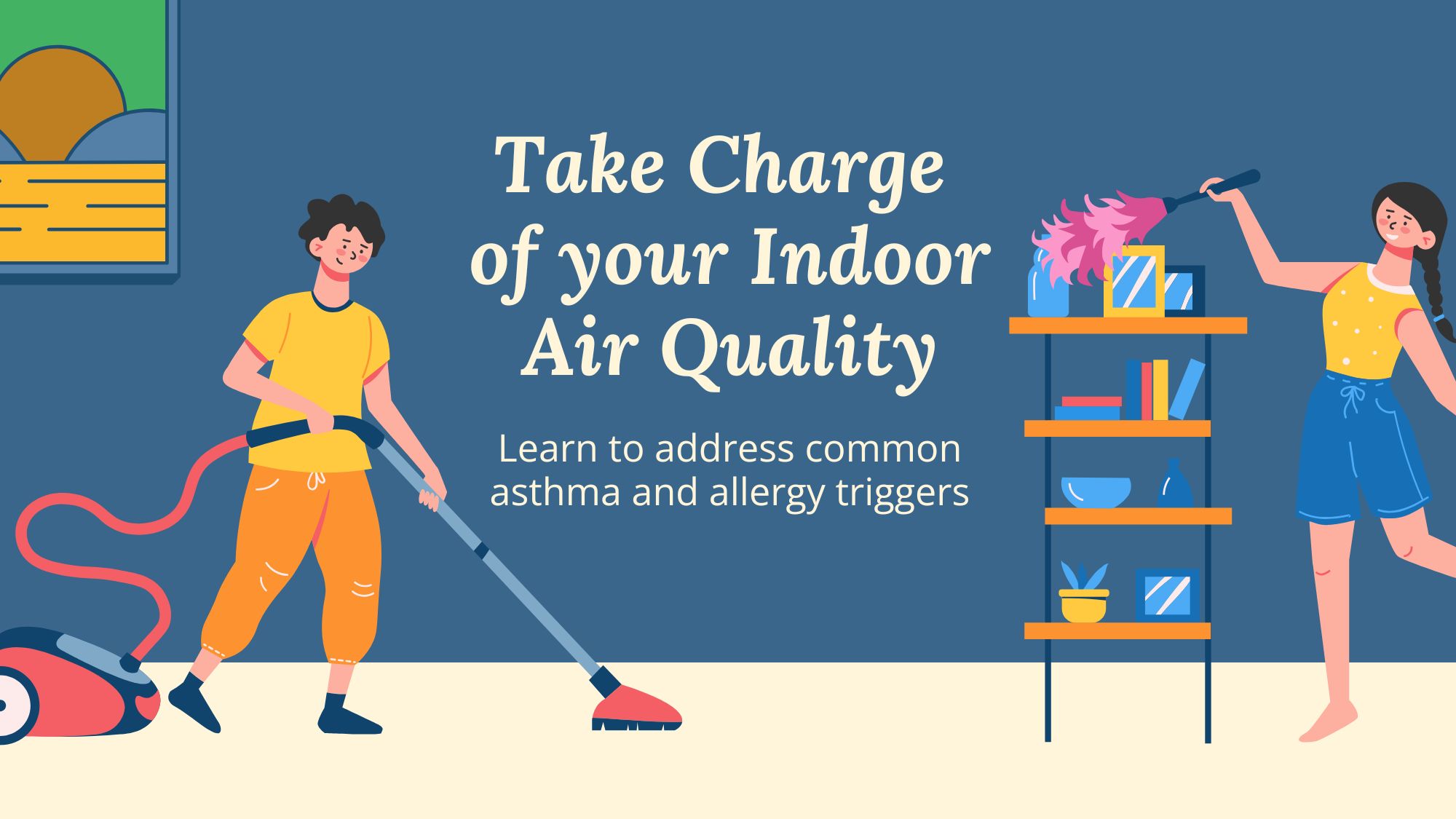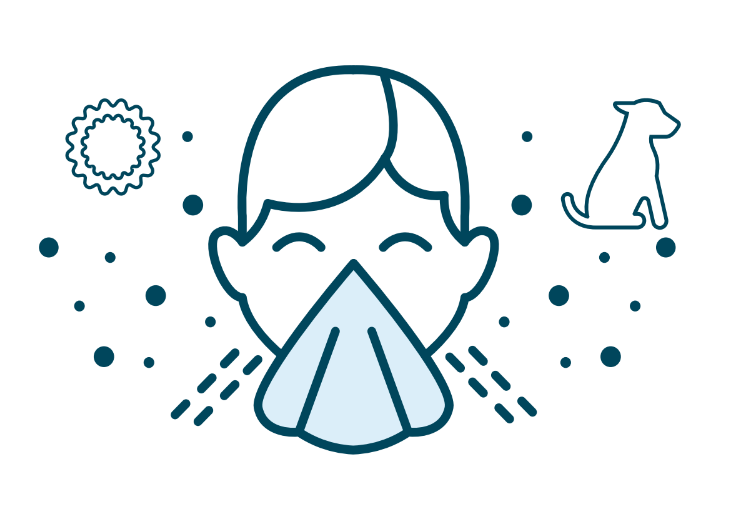
If you’re not affected by asthma, it’s likely that you have a friend or family member who is. While asthma severity and triggers may differ, there are common indoor culprits that can be helpful to identify and address. Read our guide below to learn how to improve your indoor air quality and make smarter choices around asthma (and allergy) triggers!
Managing Common Indoor Air Irritants
Airborne chemicals and pollutants are common culprits of poor indoor air quality. It can be helpful to use ventilation fans and air purifiers when cooking and cleaning.
🥘Cooking can create a surprisingly high amount of particulate matter — even higher than being outside on a polluted day. Before you start cooking take the time to turn on your exhaust fan, or open a window.
🧼 Cleaning chemicals and other household products are also common irritants and triggers for asthma and allergies. When cleaning, use your exhaust fan and/or air purifier and open windows if possible. Be sure to store all chemicals in a cool, dry space and consider swapping to more natural products where you can.
🐶 Dust, dirt and pet dander can create particulate matter that irritates allergies and/or asthma. Regularly vacuuming and cleaning your floors and surfaces with a wet mop or rag can make a big difference. Also, make sure you’re using a high-efficiency particulate air (HEPA) filter with your vacuum and changing it frequently.
💧Humidity can also be an asthma and allergy trigger! Try to keep indoor humidity levels between 30–50% to prevent mold and dust mites. While this is generally a less common problem in Utah, given our dry climate, it’s important to be aware of humidity levels in spaces that may not have good ventilation.
Learn more about asthma triggers from the American Lung Association.
Local Information and Resources
Looking for local resources? The Utah Department of Health & Human Services’ Utah Asthma Program (UAP) and the Salt Lake County Health Department’s Asthma Program offers a free home visiting program for asthma education for people of all ages in Salt Lake County with severe or uncontrolled asthma. Health educators teach asthma management skills, identify asthma triggers in your home, and help you understand ways to reduce them. To schedule a home visit, please call 385-468-5250 or email Kellie Baxter at kabaxter@utah.gov.
Want to learn more? Visit our Indoor Air Quality information page.
Have questions? Reach out to us at cleanairslc@slc.gov.

